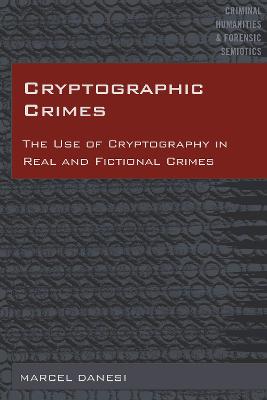Criminal Humanities & Forensic Semiotics
2 primary works
Book 1
The serial killer has become an obsession ever since Jack the Ripper became a media sensation, embedding a new and horrifying type of murderer into our cultural consciousness - one who kills darkly and in the dark. All popular media - print, radio, television, and so on - have become absorbed by this new figure. This book traces its diffusion through all media and discusses what this reveals about modern society. Using the Dexter saga of novels and television programs as its basis, the book argues that a "Dexter Syndrome" has emerged whereby we no longer see a difference between real and fictional serial killers. The psychological and social reasons for this are explored by tracing pop culture texts themselves (movies, novels, etc.). Above all else, Dexter's concept of a "moral code" forms a thematic thread that allows the author to argue that our contemporary moral nihilism has produced the demand for horror and horrific characters like serial killers, who have replaced medieval demons and monsters.
Book 5
This book examines the use of cryptography in both real and fictional crimes-a topic that is rarely broached. It discusses famous crimes, such as that of the Zodiac Killer, that revolve around cryptic messages and current uses of encryption that make solving cases harder and harder. It then draws parallels with the use of cryptography and secret writing in crime fiction, starting with Edgar Allan Poe and Arthur Conan Doyle, claiming that there is an implicit principle in all such writing-namely, that if the cryptogram is deciphered then the crime itself reveals its structure. The general conclusion drawn is that solving crimes is akin to solving cryptograms, as the crime fiction writers suggested. Cases of cryptographic crime, from unsolved cold cases to the Mafia crimes, are discussed and mapped against this basic theoretical assumption. The book concludes by suggesting that by studying cryptographic crimes the key to understanding crime may be revealed.

